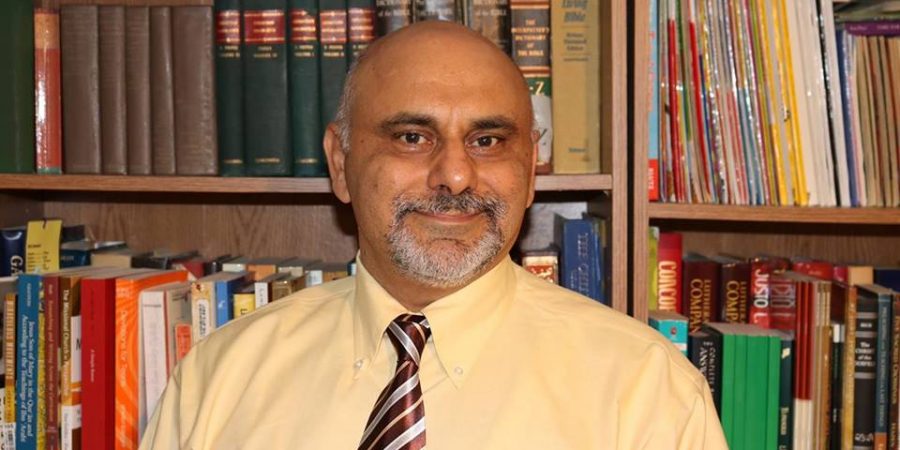Missionaries today are more likely to be teachers or facilitators...
Mission Tests Our Christian Faith: Do Christians live the Great Commission?

Mission Tests Our Christian Faith
Do Christians live the Great Commission?
Ideally speaking, we would expect this much: All Christians are involved in mission after having received the good news of their reconciliation with God through Christ. They have the desire of sharing that wonderful news with others without selfishly protecting and withholding it from people who live estranged from God. Mission is the measure of the Church’s health. According to the British theologian and missiologist, Lesslie Newbigin, mission tests our faith, inasmuch as it tests about “our readiness to share it with all peoples.” Putting mission work into practice is more organized and transitory than that ideal suggests. It is more organized because the focus and logistics of mission have become more specific than they were in the past. It is more transitory because missionaries expect to hand over their task to local people far more intentionally than in the past. True, there is still a resemblance to Protestant mission as it began two hundred years ago when William Carey (1761–1834) cried out in Enquiry into the Obligations of Christians, to Use Means for the Conversion of the Heathens (1792) for a renewed commitment to apostolic mission. Just as in the past, missionaries today are also called, trained, and sent to specific areas. But their job description and sphere of duty have little in common with the classic pioneer model of mission that was employed throughout most of the eighteenth century to the better part of the twentieth century. Missionaries at that time went to remote regions to preach and baptize and with the task of establishing churches where none existed.
Distractions in the Mission
Today missionaries are only indirectly involved in those tasks since the major part of their work concentrates on teaching and training indigenous leadership. Missionaries today are more likely to be teachers or facilitators who enable local indigenous leaders to assume the task of church planting. Representatives in mission should carefully consult Scripture for the validity of a shift in strategy. “Old-fashioned” ideals of what missionaries once did are perhaps not that outdated after all. It seems as if the Great Commission texts point out a method that should remain with the Church for all times. They encourage the sending of individuals authorized to make disciples through Baptism and instruction (Matthew 28) and of imparting the forgiveness of sins through preaching and absolution (John 20). What, then, explains this shift of mission strategies and roles in recent years? One logical explanation lies in today’s attempts to correct the failures of past mission practices. As stated, traditionally missionaries preached, baptized, and planted churches. In this capacity, they generally also held leadership positions in the young emerging churches, but unfortunately, in many cases, they did so for far too long, thus curbing the process of building indigenous churches and leadership. Missionaries of the 1990s will recall Tom Steffen’s Passing the Baton: Church Planting That Empowers. The author makes the important point that missionaries should work themselves out of a position from the outset. The byword chosen to describe the negative phenomenon of missionary dominance is “paternalism.” Ever since Protestant mission started three centuries ago, paternalistic attitudes have strained relations between young churches and foreign missionaries. In extreme cases, some churches, such as those in Japan, even declared a moratorium on mission, a stop to foreign missionary presence. Christians wanted to assess their national situation apart from foreign intervention so as to emerge with a renewed and better sense for a mission of their own. Another factor explaining the shift to a new paradigm is that mission has become an inclusive affair for all Christians. In the past, Christians primarily fulfilled their missionary obligation by supporting foreign mission through tithing and donations. They did this by staging annual mission festivals at which members heard through sermons and presentations about the life and work of career missionaries in faraway countries such as India, and members affirmed their support for missionaries by funding these societies. Christians understood mission as a foreign enterprise that engaged specially trained experts for overseas duties without having to engage in that missionary activity themselves.
Locality, not Task, Decides the Mission
David Bosch explains the common perception of the Great Commission: After all, the Great Commission (Matt. 28:19) explicitly says: “Go ye therefore …” The locality, not the task, decided whether someone was a missionary or not; he is a missionary if he is commissioned by the Church in one locality to go and work elsewhere. The greater the distance between these two places, the clearer it is that he is a missionary. That picture has largely changed. The statement “involvement leads to commitment” captures this overall shift. Many Christians want to become shareholders of the Church’s mission, and they criticize it if they find no personal place in it. Apart from fasting and prayer in Acts 13:1–3, one wonders how much of a role the individual members of the congregation actually played in the mission of Barnabas and Paul. Today, the answer is simple. While the sending of specially trained individuals still goes on, numerous volunteers have also stepped in for service at home and abroad. The world has become a global village not only in terms of technology but also in terms of accessibility through travel. Christians have easy access to funds, and many wealthy congregations have stepped forward to offer their members the opportunity for mission and service overseas. The whole “sentness” character of mission has thus given way to a more inclusive model in which every Christian congregation and its members serves as agents in organized mission, rather than just a few individuals. One wonders, however, whether the focus on “inner” mission and the inclusive approach will not eventually deplete the number of long-term career missionaries deployed overseas. Unlike a century ago, churches exist in almost all parts of the world and to a large measure could take on the task of mission in their area themselves.
Should We Abort Foreign Missions?
Dare we thus ask this provocative question: Why not radically abort foreign mission and let the indigenous churches concentrate on reaching out to their neighbors? The answer is, again, simple. We cannot abandon foreign mission because of the enormity of the task. Also, partner churches often find themselves with severely limited resources. They need the financial and personnel support of larger, wealthier church bodies. When one factors in the so-called “unreached” regions of the world, it should be apparent that foreign mission must continue as a strategic deployment of trained individuals over a longer period. In recent years, church bodies in the West are recruiting foreign missionaries in new ways to limit costs. This new arrangement is partly a result of the sad reality that many countries harbor anti-American sentiments, which renders the sending of American missionaries a dangerous enterprise. Unless missionaries from the United States who wish to serve overseas entertain the prospect of martyrdom, this new strategy seems to be a better option and comes with a far smaller human price tag.
Adapted from Detlev Schulz, Mission From the Cross . Concordia Publishing House.
Read more news at XPian News... https://xpian.news

Hesham Shehab
Adjunct Faculty at College of DuPage, Formerly Adjunct Faculty at American University of Beirut and Pastor at Peace Lutheran Church Lombard, IL Name pronounciation: HI-shahm SHI-hab Hebrews 12: 4 & Philippians 1: 29




Comments are Closed